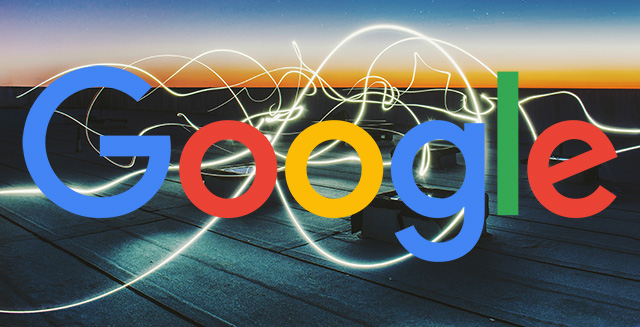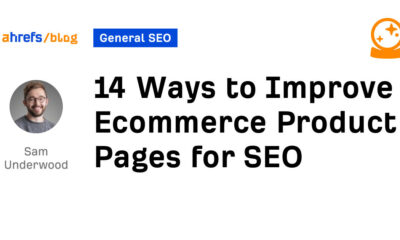SEARCHENGINES
Google On The Most Expensive Pages To Crawl

There is a fun Twitter thread where Google’s John Mueller and SEO Elmer Boutin talk about expensive pages for Google to crawl. John starts off by explaining that Google doesn’t think about it from an expense or not, it is more about if the page is something that is relevant and useful – that is what Google cares about.
John goes on to say that the “most “expensive” pages are those we’ve been crawling & indexing for years, and nobody has looked for them ever.” But Google crawls and indexes those pages because “what if tomorrow is different? It’s good to be prepared,” he added. He then threw out the line “15% of all searches are new every day, you never know.” Indeed.
Here are those tweets:
All of web-search costs time & resources. I don’t think it’s useful to compare the processing effort of specific media types, the important part is that relevant & useful content can be linked to for users who are looking for it.
— John Mueller is mostly not here 🐀 (@JohnMu) November 15, 2022
Thank you for the response. You bring up a very good point that I believe we SEOs talk about often, but our advice is not heeded as much as it should be.
— Elmer Boutin (@rehor) November 15, 2022
Sure, Google tries to be as efficient as possible when it comes to everything it does. That means discovering, crawling, indexing, ranking and serving are all done with efficiency in mind. But not at the expense of not providing the most useful and relevant search result to the searcher.
Forum discussion at Twitter.
Source: www.seroundtable.com
SEARCHENGINES
Daily Search Forum Recap: April 17, 2024
Here is a recap of what happened in the search forums today, through the eyes of the Search Engine Roundtable and other search forums on the web.
The Google March core update still is causing volatility and it is deepening. Google may make changes to the crawl stats report in Search Console. Google Search Console now shows unused ownership tokens. Google Maps will drop the review drafts. Google Add added generative AI for image generate for Demand Gen campaigns. Google Search is testing more sitelinks designs.
Search Engine Roundtable Stories:
-
Deepening Google Core Ranking Volatility Hits Yesterday & Today
I know we just reported on more volatility this Monday, possibly related to the Google March 2024 core update, but we are seeing even more volatility over the past 24 hours related to this update. This volatility shows deepening movement for those who were hit, which is incredibly sad in many cases. -
Google Search Console Adds Unused Ownership Tokens
Google Search Console has a new security feature under user and permission management to help you manage your unused ownership tokens. Basically, it helps you manage who has permissions to your Search Console profiles and who should not, maybe some legacy verifications. -
Google: Should We Explain The Crawl Stats Report in Search Console
Martin Splitt from Google posted a one-line question asking, “Should we do something to explain the crawl stats report in GSC?” This was posted on Mastodon, which has a small audience, but the responses were pretty good. -
New Google Ads AI Generated Image Tool For Demand Gen Campaigns
Google Ads announced that Demand Gen campaigns are getting generative AI tools to create image assets. This is rolling out to advertisers around the world in English with more languages to come later this year, Google said. -
Google Tests Horizontal Lines For Sitelinks & People Also Ask
Google Search is testing horizontal lines under the sitelinks and the people also ask elements in the search results. This is a long horizontal line that goes across the while search result snippet. -
Google Maps No Longer Will Support Draft Reviews
Google Maps will soon stop supporting drafting reviews for local business listings and Google Business Profiles. Google said that starting July 16, 2024, review drafts will no longer be supported. -
Doogler In Google Play Area
Some of you love photos of dogs, so here is another one of a Doogler, a Google dog, in a play area, at the Google office. This was shared by the Life at Google Twitter account.
Other Great Search Threads:
Search Engine Land Stories:
Other Great Search Stories:
Analytics
Industry & Business
Links & Content Marketing
Local & Maps
Mobile & Voice
SEO
PPC
Search Features
Other Search
Feedback:
Have feedback on this daily recap; let me know on Twitter @rustybrick or @seroundtable, on Threads, Mastodon and Bluesky and you can follow us on Facebook and on Google News and make sure to subscribe to the YouTube channel, Apple Podcasts, Spotify, Google Podcasts or just contact us the old fashion way.
SEARCHENGINES
Daily Search Forum Recap: April 16, 2024
Here is a recap of what happened in the search forums today, through the eyes of the Search Engine Roundtable and other search forums on the web.
Google will fight the site reputation abuse spam both algorithmically and with manual actions. Google is testing thumbs-up and down in product carousels. Google Ads similar product carousel is being tested. Google Search updated its image documentation. Google AdSense has a new ad format named ad intents.
Search Engine Roundtable Stories:
-
Google Will Fight Site Reputation Abuse Spam Both With Manual Actions & Algorithms
Google’s new spam algorithm update also introduced new spam policies including the upcoming site reputation abuse policy that won’t go into effect until May 2024. Google has confirmed it will fight site reputation abuse spam using both manual actions (humans) and algorithms (machines). -
Google Search Tests Thumbs Up/Down Buttons In Product Grid Results
Google launched the style recommendations with thumbs up and down buttons not long ago after testing it in January. Now Google is showing this thumbs up and down buttons in the product grid search results, so Google can see what you like or dislike and then show you more products that you do like. -
Google Ads “Similar Product” Carousel
Google has a similar products section and carousel for Google Ads sponsored listings. We have seen similar products and similar shopping related results from the organic / free listings but now I am seeing examples of a search ad carousel for “similar products.” -
Clarification: Google Search Supports Images Referenced From src Attribute
Google has clarified in its image search help documentation that images are only extracted from the src attribute of img tags in Google Search. This is not new, but Google decided to update its documentation based on some questions it received about the topic. -
Google AdSense New Ad Intents Formats – Links & Anchors In Content
Google AdSense announced a new auto ads format named “Ad intents.” Ad intents places links and anchors showing organic search results with ads into existing text and pages on your site related to your content. Yea, it takes your content, and hyperlinks it to the Google search results. -
3-Wheel Tricycle At Google
Google’s Ann Arbor office has this 3-wheel tricycle that some Googlers have used over the years to get around the office. This one looks like the hot pink Huffy brand. I spotted this recently on Instagram but the photo is from 2016.
Other Great Search Threads:
- I don’t have an update to share at this time, but you should continue to use classic GMC for rules and supplemental feed support. Here’s how to switch back if needed, AdsLiaison on X
- In this case, I’ve been introducing a new metric; “likelihood to get search traffic” to see what we should add to XML sitemaps. Some pages might do incredibly well on other metrics, but simply, Joost de Valk on X
- It does have a title, and it loads a HTML page – so this seems normal. The JavaScript doesn’t seem to be loading well, so if you’re the site owner, I’d suggest reading ou, John Mueller on X
- News! Google Ads removed in some accounts the possibility to hover over a daily budget to edit it. You need to hover now and then click on “Edit budget”. Why changing things to less user-friendly ones, Thomas Eccel on X
- The time has come! Registration for the Zürich Product Experts Summit has now opened for eligible PEs in Europe. Virtual registration will follow in May. Check your inboxes and the KB for more details., Google’s Product Experts Program on X
- When I want to add positive search terms as exact match, I first add them quickly as broad, then bulk switch them over to exact match. lately I’ve been getting this error and the only way I can switch the keywords is by using Ads Editor., Greg on X
- Yeah, quantity says nothing about quality and even less about user value or business value. Sometimes the solution to a “crawl budget problem” is not to make the server faster & search engines, John Mueller on X
- Which the best method to link to the alternative language of a website, WebmasterWorld
Search Engine Land Stories:
Other Great Search Stories:
Analytics
Industry & Business
Links & Content Marketing
Local & Maps
Mobile & Voice
SEO
PPC
Search Features
Other Search
Feedback:
Have feedback on this daily recap; let me know on Twitter @rustybrick or @seroundtable, on Threads, Mastodon and Bluesky and you can follow us on Facebook and on Google News and make sure to subscribe to the YouTube channel, Apple Podcasts, Spotify, Google Podcasts or just contact us the old fashion way.
SEARCHENGINES
Daily Search Forum Recap: April 15, 2024
Here is a recap of what happened in the search forums today, through the eyes of the Search Engine Roundtable and other search forums on the web.
There was more Google core update volatility over the weekend. Google defended its statements about forums ranking for almost everything. Google responded to The Verge’s printer article mocking its search results. Google AdSense publishers are seeing really big earnings drops. Google crawl budget is allocated on the hostname level. Google threatened California over its new proposed link tax bill with pulling investments and its news results from the state.
Search Engine Roundtable Stories:
-
Weekend Google Core Ranking Volatility Taxing Site Owners
As I mentioned briefly in my Friday video recap, I was starting to see renewed chatter on Friday morning around more Google search ranking volatility. I spotted some renewed chatter that lead through Friday, into Saturday and today. So I figured I’d cover it and share some of what SEOs are saying over the weekend. -
Google Responds To The Verge Mocking Its Search Rankings For Best Printer
Nilay Patel, editor-in-chief of the Verge posted a new article with the intent to both rank for [best printer] in Google Search, as well as mock Google for how he can game Google’s search rankings using AI-generated content, while throwing in some affiliate links. Google’s John Mueller responded saying, “People seem to really enjoy it.” -
Google Goes On Defensive On Its Search Quality & Forum Results Statements
Recently, we covered some of Google’s rationale for ranking forums like Reddit and Quora so well in the Discussion and Forums box for many queries. Just a few days ago, we covered how I was sad to see Google ranking some dangerous and potentially harmful forum threads for health-related queries. -
Google Threatens California: Tests Removing Links To Publishers & Pauses Investments
On Friday, Google responded to a pending bill in the California state legislature, the California Journalism Preservation Act (CJPA), that would require Google to pay a link tax to publishers by testing removing links to California based publishers and pausing investments in news publishers within the state. -
Google Crawl Budget Is Allocated By Hostname
Google gives every hostname its own allocated crawl budget. So that means each domain, subdomain, etc has its own unique crawl budget. -
Google AdSense Publishers Reporting Huge RPM Earnings Drops
Many Google AdSense publishers have been reporting massive declines in their earnings and RPMs (page revenue per thousand impressions) since late February. This comes a couple of weeks after we reported the switch from CPC to CPM bidding in AdSense did not have a negative revenue result for publishers. -
Google Android Figurine Display Case
At the Google Chicago office they have dozens of Android figurines on display in this glass display case. I guess they all have a name and are labeled with details. I found this image on Instagram.
Other Great Search Threads:
- These things are done when they’re done, it’s hard to predict exact timelines., John Mueller on X
- Google just changed the layout for product detail window , also include the near by store in this, Khushal Bherwani on X
- Google Ads charging 0.01 for a few European countries, WebmasterWorld
- GPTBot got stuck in giant content farm, Orhan Kurulan on X
- I created a chatbot with the Google Webmasters Documentation. Based on the current data, the tool has: 1. Over 15,000 requests 2. Over 3,000 users 3. I received support from @JohnMu and @g33konaut from Google itself, Dido Grigorov on X
- I am the new Paid Media News Writer of @sengineland ! Such an honour – can’t believe it! I get to work with the likes of @rustybrick and @MrDannyGoodwin!! Dreams do come tru, Anu Adegbola on X
Search Engine Land Stories:
Other Great Search Stories:
Analytics
Industry & Business
Links & Content Marketing
Local & Maps
Mobile & Voice
SEO
PPC
Search Features
Other Search
Feedback:
Have feedback on this daily recap; let me know on Twitter @rustybrick or @seroundtable, on Threads, Mastodon and Bluesky and you can follow us on Facebook and on Google News and make sure to subscribe to the YouTube channel, Apple Podcasts, Spotify, Google Podcasts or just contact us the old fashion way.
-

 WORDPRESS7 days ago
WORDPRESS7 days agoTurkish startup ikas attracts $20M for its e-commerce platform designed for small businesses
-

 MARKETING6 days ago
MARKETING6 days agoRoundel Media Studio: What to Expect From Target’s New Self-Service Platform
-

 SEO6 days ago
SEO6 days agoGoogle Limits News Links In California Over Proposed ‘Link Tax’ Law
-
SEARCHENGINES6 days ago
Daily Search Forum Recap: April 12, 2024
-

 SEO5 days ago
SEO5 days ago10 Paid Search & PPC Planning Best Practices
-

 SEARCHENGINES5 days ago
SEARCHENGINES5 days agoGoogle Core Update Volatility, Helpful Content Update Gone, Dangerous Google Search Results & Google Ads Confusion
-

 SEO7 days ago
SEO7 days agoGoogle Unplugs “Notes on Search” Experiment
-

 MARKETING5 days ago
MARKETING5 days ago2 Ways to Take Back the Power in Your Business: Part 2















You must be logged in to post a comment Login